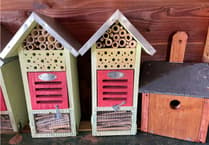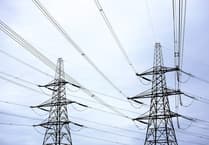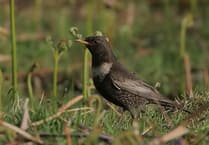RSPCA Assured is calling on the public to still support hen welfare with their purchasing decisions, despite all free-range eggs now being labelled as ‘barn’ due to bird flu restrictions.
As of yesterday (Wednesday) eggs laid and then sold through the British egg industry Lion Code label can no longer be labelled as free-range or free-range organic which means consumers will only see ‘barn’ or ‘caged eggs’ on their supermarket shelves.
However, whether free-range, organic or barn, RSPCA Assured eggs are always higher welfare.
The changes to the labelling of eggs is due to the compulsory nationwide housing order which was put in place for all birds in England, Wales and Northern Ireland at the end of last year, as the UK faces one of the worst outbreaks of Avian Influenza (AI), also known as ‘bird flu’, ever seen.
The housing order means all free-range hens were moved indoors to protect them from the spread of disease. Sadly, an estimated three million laying hens have been culled due to bird flu since 2021 which accounts for around seven percent of the industry’s birds.
There is an EU derogation for free-range laying hens which states they can be kept inside for up to 16 weeks if they are required to be housed in an event such as a bird flu outbreak and their eggs can still be labelled free-range during this time. However, this time period ended for the whole of the UK yesterday which means all eggs from free-range birds that are being housed must now be labelled as ‘barn’.
Kate Norman, the RSPCA’s laying hen welfare expert, said: “Thanks to clear labelling for eggs - such as ‘free-range’, ‘organic’, ‘barn’ and ‘caged’ - there is a good level of awareness in the UK about how laying hens have been cared for, so today’s news may understandably cause concerns about hen welfare.
“We know that Google searches for ‘free-range’ increased by 809 per cent from January to March last year which was the last time eggs could no longer be labelled free-range due to bird flu restrictions. This highlights that this issue is clearly something consumers care about and are actively looking for more information on.
“We want to reassure the public that it is still possible to buy eggs from hens that have been well cared for. Whether free-range, organic or barn, RSPCA Assured eggs are always from farms inspected to the RSPCA’s higher welfare standards. This means they are 100 per cent cage-free and the hens are provided with raised perches and plenty of enrichment inside the barn to peck at, forage and express their natural behaviour.”
Free-range birds will return to the outdoors as soon as governments across the UK deem it safe to do so. But in the meantime, the public can be reassured that RSPCA Assured barn eggs continue to be higher welfare.
The ethical food label and farm assurance scheme has released a new video to help the public better understand bird flu and its impact.
For more information on RSPCA Assured products, click here.




